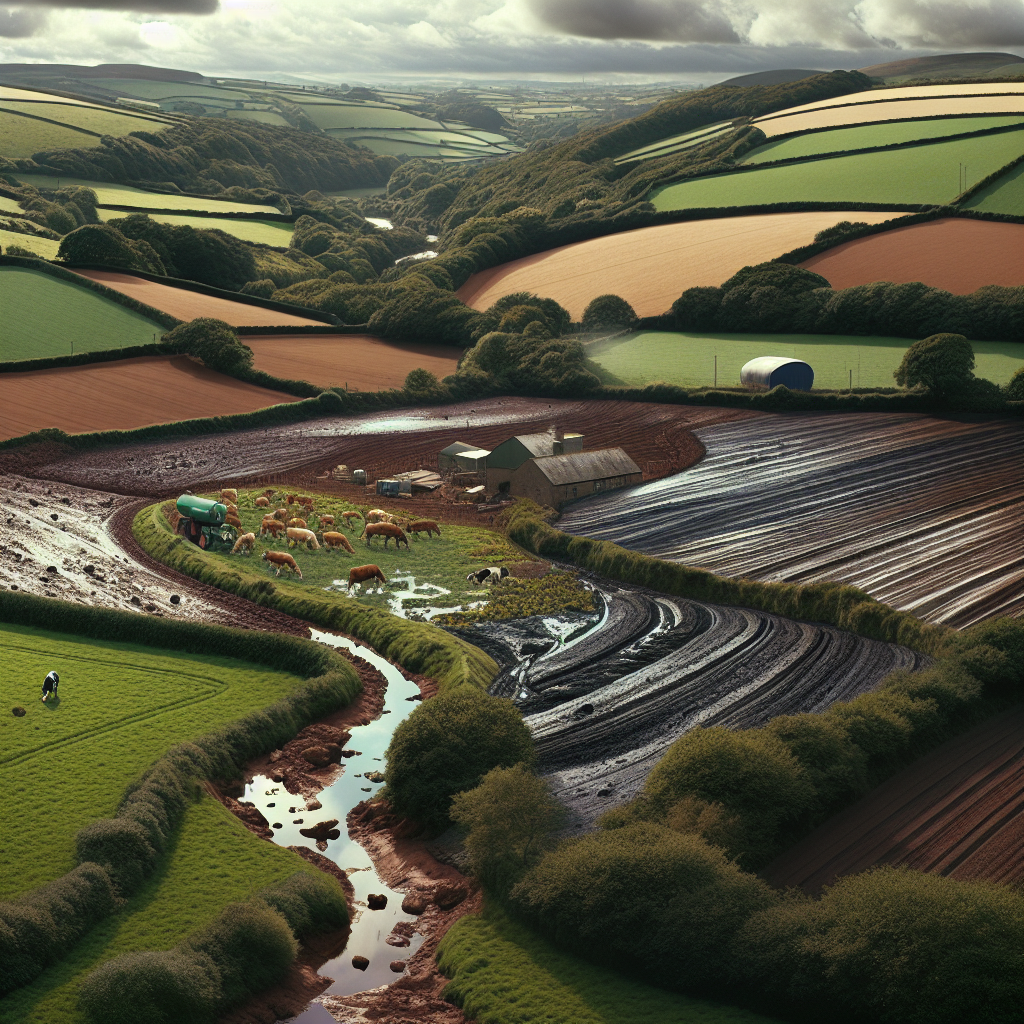
Understanding the Rising Issue of Soil Pollution in Devon and Cornwall
The Environment Agency has raised an alarm over the increasing cases of soil erosion and pollution incidents in Devon and Cornwall. Due to the effects of climate change and inadequate preventive measures, these incidents have almost doubled recently. This article delves into the underlying causes, potential solutions, and the actions needed by the farming community to tackle this issue effectively.
Alarming Increase in Pollution Incidents
In January alone, there have been 25 reported incidents of heavy rains washing off farm fields into rivers, roads, and homes. This number is nearly double compared to the same period in previous years. It highlights an urgent need for the agricultural sector to adapt to the evolving climate scenario.
Causes of Soil Erosion
Farmers have traditionally relied on certain methods to prevent soil erosion, but these techniques are becoming less effective due to climate change. Some of the primary causes of soil erosion include:
- Heavy Rainfall: Intense and frequent rainfall leads to increased soil runoff.
- Improper Land Management: Outdated farming practices that fail to consider climate variability.
- Lack of Vegetative Cover: Absence of cover crops during critical periods leaves soil exposed to erosion.
Impact on Farmers and the Environment
The consequences of soil erosion extend beyond environmental degradation:
- Crops Loss: Farmers face significant financial losses due to the destruction of crops and nutrients.
- Re-cultivation Costs: Additional financial strain due to the need to re-cultivate and re-sow fields.
- Long-term Soil Health: Loss of topsoil and organic matter impacts soil fertility and productivity.
Adapting to a Changed Climate
Laura Bentley, a land management project officer with the Environment Agency, stressed that traditional methods like reduced tillage and minimal soil disturbance might no longer be effective in the changed climate of Devon and Cornwall. She noted:
“Winter cereals and cover crops aren’t taking and bare, compacted soil is exposed to the elements and prone to run-off.”
Recommended Measures for Farmers
The Environment Agency has put forward several recommendations to help farmers better prepare for adverse winter weather:
- Conduct Risk Assessments: Use the agency’s Alert system to identify and prioritize high-risk areas.
- Monitor Soil Compaction: Regularly check for soil compaction and use suitable cultivation techniques to address it.
- Diversify Cultivation Tools: Ensure access to a range of equipment capable of working the soil at different depths.
- Plan for Contingencies: Have a Plan B in place if primary methods like cover crops fail to establish.
- Install Run-off Measures: Put in place barriers to prevent runoff from reaching sensitive areas.
The agency plans to provide advice and guidance to farmers but is also prepared to issue formal warnings and take enforcement actions if necessary.
Reporting and Community Involvement
Residents who observe discolored water run-off from fields that could threaten properties or waterways are encouraged to report such incidents to the Environment Agency’s 24/7 incident hotline at 0800 807060. Community vigilance is crucial in managing and mitigating soil pollution risks.
For more updates and to follow related news, connect with BBC Cornwall and BBC Devon on X, Facebook, and Instagram.
Conclusion
Addressing soil pollution and erosion requires a proactive and informed approach. The farming community in Devon and Cornwall needs to adapt their practices to align with new environmental realities. By implementing recommended measures, farmers can mitigate the risks associated with soil erosion, safeguarding both their livelihoods and the environment.
Stay informed about related stories, solutions, and advice by following reliable sources and engaging with local environmental initiatives.
Source: https://www.bbc.com/news/articles/c39vl1grz81o

